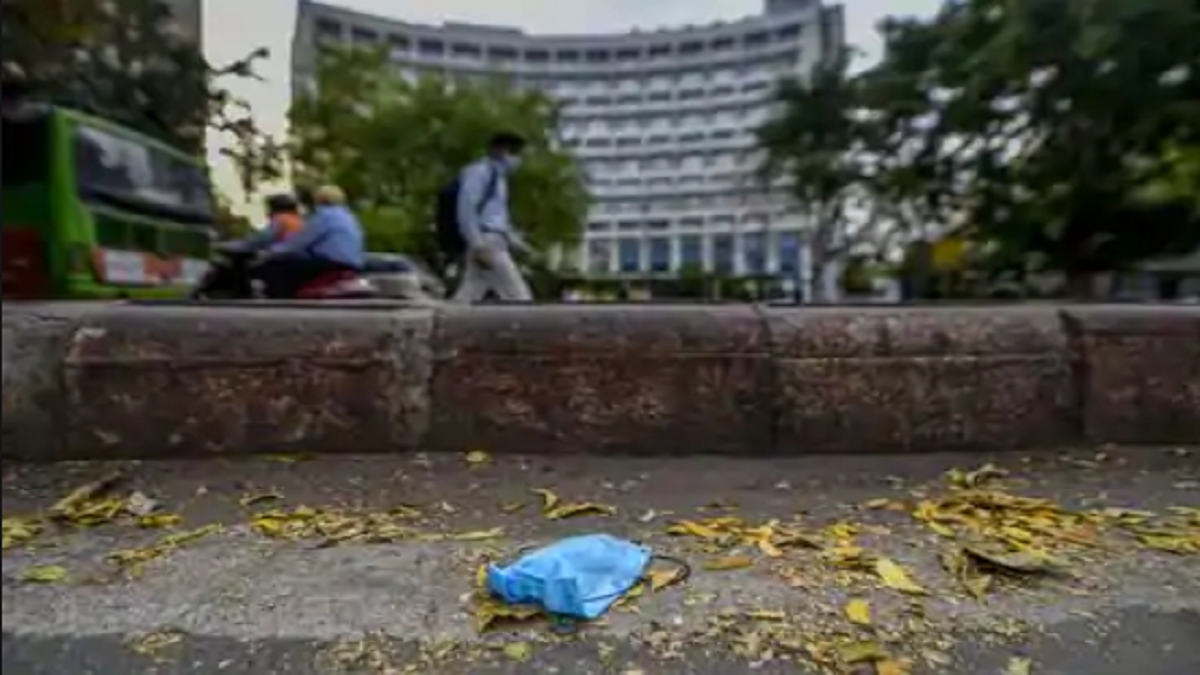


Despite Chief Minister Arvind Kejriwal’s tall claims of bringing Covid situation under control in Delhi, a report has found out that top 5 containment zones in the national Capital have no proper sanitisation and basic civic facilities including clean drinking water. This annual report launched by NGO Praja Foundation also stated that the highest number of civic complaints, as many as 56% of the total, reported in 2019 with respect to garbage, water, sewerage, toilets and sanitation were from the top five administrative zones with maximum number of containment zones.
“This is not just about the pandemic. A high number of infections and deaths are regularly reported due to water contamination, poor sanitation and mismanaged waste. For example, the water quality tests of the Delhi Jal Board (DJB) showed 1.3% unfit water samples in 2019, but there were 5,14,052 diarrhoea cases, 1,526 cholera cases and 51,266 cases of typhoid reported in government dispensaries and hospitals in 2018-19. These services are therefore the most basic requirements of good health and of a good quality of life,” said Milind Mhaske, director, Praja Foundation.
A total of 368 areas were sealed on 18 July this year including areas like South district, Najafgarh, Shahdara South, West district and Rohini. These zones were the ones which also reported the highest number of civic issue complaints last year. Data compiled from RTIs to municipal corporations and Delhi Jal Board said that around 23,555 and 465 complaints were filed related to garbage and toilet/sanitation respectively in 2019, while 1.15 lakh and 78,638 complaints regarding water supply and sewerage-related issues respectively were also registered. Around 55%, 58% and 57% of the complaints related to garbage, toilet/sanitation and sewerage respectively had come from these 5 MCD zones.
Multiple agencies and governments in Delhi still grapple with providing basic civic services that are key determinants of health. In the last three years, councillor attendance in ward committees experienced a drastic fall from 74% in 2017 to 61% in 2019. Further, not a single issue was raised in ward committees by the 9 councillors from BJP, 2 from AAP and 5 from Congress. The report also highlighted the issue of male to female disparity in the case of toilets—only one in four public toilet seats are for females. While the toilet to population ratio according to the Swachh Bharat Mission (SBM) norm for toilets is 1 public toilet seat for 100-400 males and 1 public toilet seat for 100-200 females, Delhi as per data from 2019, has only 1 public toilet seat per 4,373 males and 1 per 10,039 females.
“The major problem in Delhi is not just about providing basic services equitably, but about monitoring. Complaints are one of the most effective ways to understand area wise issues that concern people. But Delhi’s complaint management system is as fractured as its governance. The MCDs and state government, including the DJB have different complaint management systems,» Mhaske said.
Delhi has a long way to go in ensuring adequate, equitable and sustainable water, sanitation and solid waste management facilities, which have a direct bearing on health. According to the report, the maximum number of complaints in 2019 were related to buildings (59,896), solid waste management (23,555) and nuisance due to stray dogs and monkeys (19,013). While complaints related to sanitation/toilets and sewage categories saw a rise of 13% and 389% respectively compared to the previous year. A similar report was also published for Mumbai, in which correlation was made between poor civic amenities and Covid-19 spread.